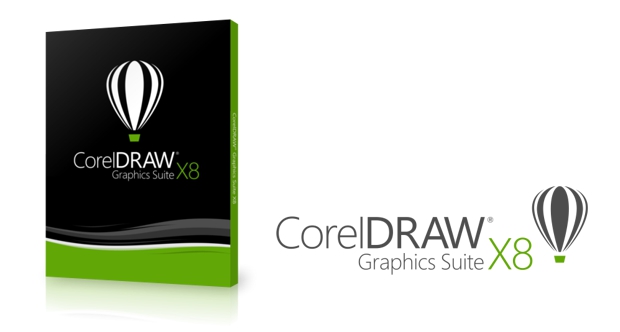Different types of computer processors with features
There are many different processors on the market. However, there are only a few that you should consider purchasing.
A few years ago, choosing a processor was pretty straightforward. AMD and Intel each produced two series of processors, a mainstream line and a budget line. Each company used only one processor socket, and there was a limited range of processor speeds available. Nowadays, choosing a processor isn’t as simple. AMD and Intel now make literally scores of different processor models. Each company now offers several lines of processors, which differ in clock speed, L2 cache, socket type, host-bus speed, special features supported, and other characteristics.
1.AMD Athlon 64

The AMD Athlon 64 processor, is available in Socket 754 and Socket 939 variants. As its name indicates, the Athlon 64 supports 64-bit software, although only a tiny percentage of Athlon 64 owners run 64-bit software. Fortunately, the Athlon 64 is equally at home running the 32-bit operating systems and applications software that most of us use.
2.Intel Pentium 4
The Pentium 4 is Intel’s flagship processor, and is available in Socket 478 and Socket 775.
All 500-series processors use the Prescott-core and have 1 MB of L2 cache. All 600-series processors use the Prescott 2M core and have 2 MB of L2 cache. Intel uses the second number of the model number to indicate relative clock speed.
3.Dual-core processors
By early 2005, AMD and Intel had both pushed their processor cores to about the fastest possible speeds, and it had become clear that the only practical way to increase processor performance significantly was to use two processors.
AMD, later followed by Intel, chose to go dual-core.
Combining two cores in one processor isn’t exactly the same thing as doubling the speed of one processor. For one thing, there is overhead involved in managing the two cores that doesn’t exist for a single processor. Also, in a single-tasking environment, a program thread runs no faster on a dual-core processor than it would on a single-core processor, so doubling the number of cores by no means doubles application performance. But in a multitasking environment, where many programs and their threads are competing for processor time, the availability of a second processor core means that one thread can run on one core while a second thread runs on the second core.
4.Intel Pentium D
The announcement of AMD’s Athlon 64 X2 dual-core processor caught Intel unprepared. Under the gun, Intel took a cruder approach to making a dual-core processor. Rather than build an integrated dual-core processor as AMD had with its Athlon 64 X2 processors, Intel essentially slapped two slower Pentium 4 cores on one substrate and called it the Pentium Ddual-core processor.
The dual-core 65 nm Presler-core processor, which is likely to be designated the 900-series Pentium D. The Presler-based dual-core processors will be fully integrated, compatible with existing dual-core Intel-compatible motherboards, and feature reduced power consumption, lower heat output, twice as much L2 cache, and considerably higher performance.
5.Intel Celeron D
The Intel Celeron D is a value-priced processor. The Celeron D processors include a larger integrated L2 cache and faster processor system bus when compared to Celeron processors. Celeron processors are available at speeds ranging from 1 GHz to 2.80 GHz. Celeron D processors offer a 533 MHz multi-transaction processor system bus with 256-KB Level 2 cache. Intel added Extended Memory 64 Technology to its value oriented Celeron D line.
6.Intel i3 Processors
Intel i3 processors are upgraded version of dual core processors.Intel Core i3 dual core processors provide 4-way multitasking capability, runs at fixed speed ideal for typical tasks and media playback but not games.
7.Intel i5 Processors
Intel i5 usually quad core but some dual processors deliver the next level of productivity. Mostly the same as i3 but with Intel Turbo Boost Technology, delivers extra speed when you need it. Like the i3 integrated graphics is included but is only ideal for normal use not for gaming.
8.Intel i7 Processors
Intel i7 processors dual or quad core for the most demanding applications with cache and faster clock speeds. Quad-core processors feature 8-way threading, four cores will run faster, and more L3 cache, but will consume more power. High-end use, video and gaming with dedicated video card
9.AMD A6
A6 processors dual core, includes turbo function similar to Intels allows for the processor to adapt to the task needed. Integrated graphics, on par with Core i3 range.
10.AMD A10
4 processors these quad cores are comparable with the Intel i5, and some i7s should benefit from better battery life.
ASeries processors use the FM2 socket so they will only fit in a Motherboard with FM2.
11.Quad-core processor
A quad-core processor is a chip with four independent units called cores that read and execute central processing unit (CPU) instructions such as add, move data, and branch.
Within the chip, each core operates in conjunction with other circuits such as cache, memorymanagement, and input/output (I/O) ports. The individual cores in a quad-core processor can run multiple instructions at the same time, increasing the overall speed for programs compatible with parallel processing.
12.Athlon
Athlon is the brand name applied to a series of x86-compatible microprocessors designed and manufactured by Advanced Micro Devices (AMD).
Unlike Intel’s dual-core Pentium G for desktop, the AMD Athlon™ X4 CPU boasts true quad-core architecture fully capable of handling modern processing tasks.
Many popular, modern software titles can require quad-core processors to run properly. The AMD Athlon™ X4 CPU is built to handle highly-threaded applications, and perform when you need it most.



































